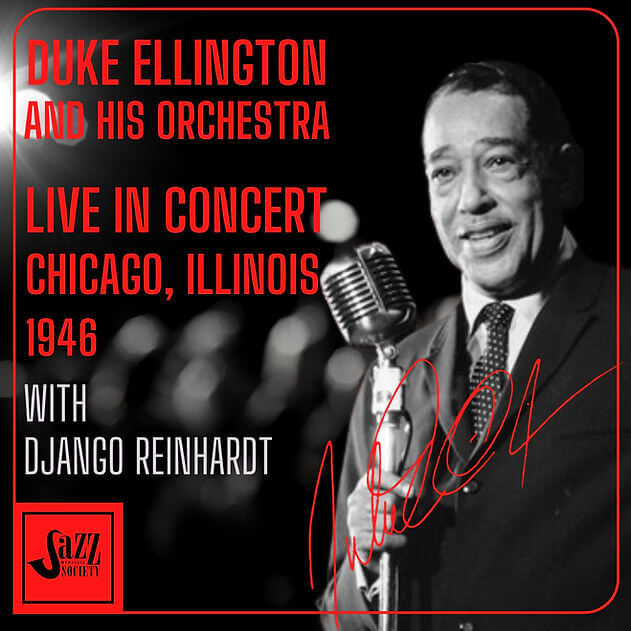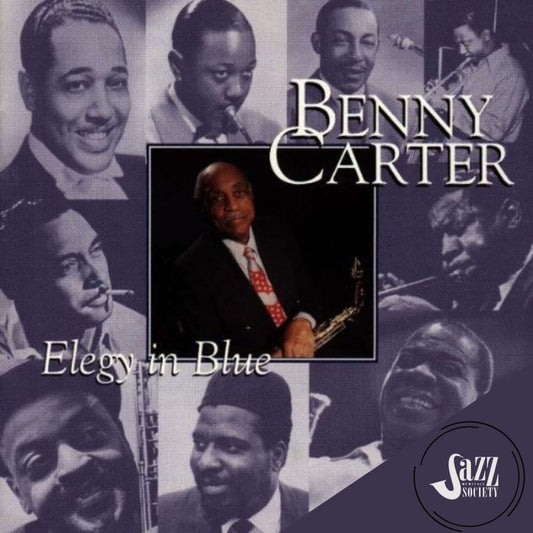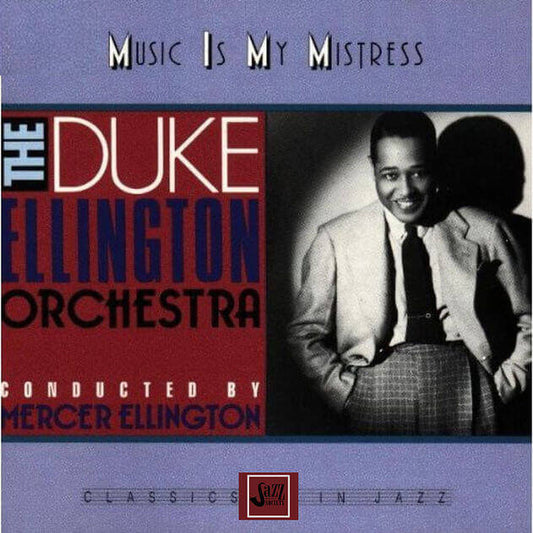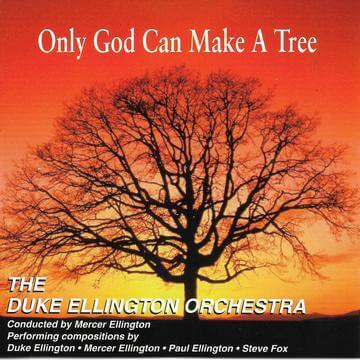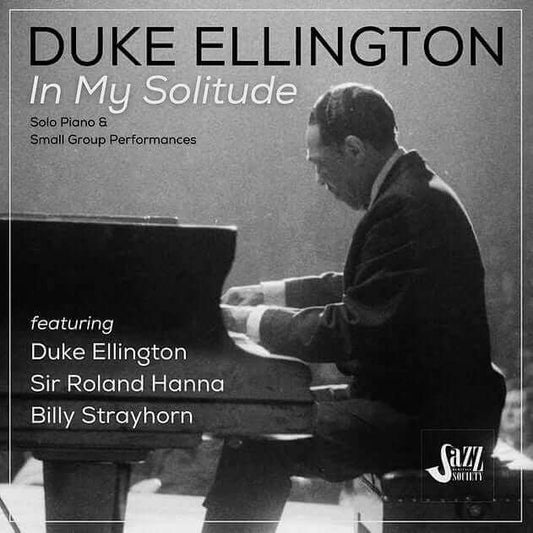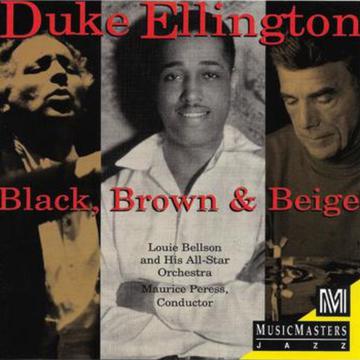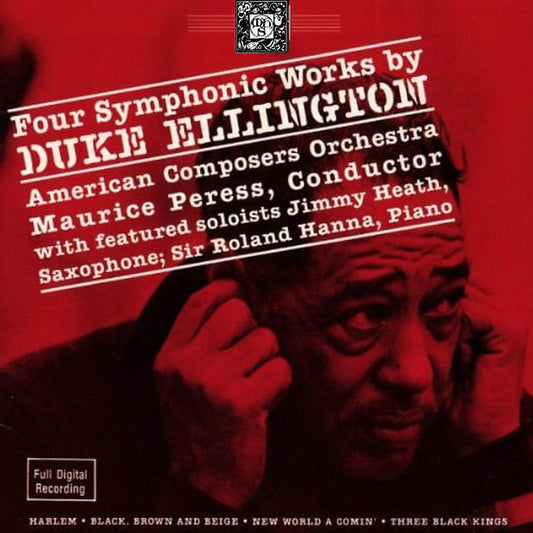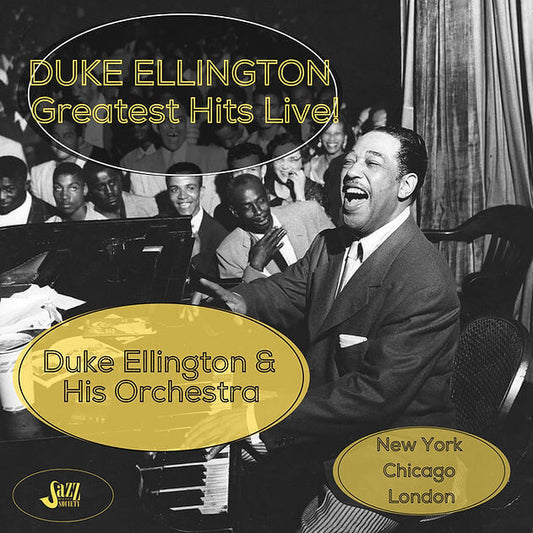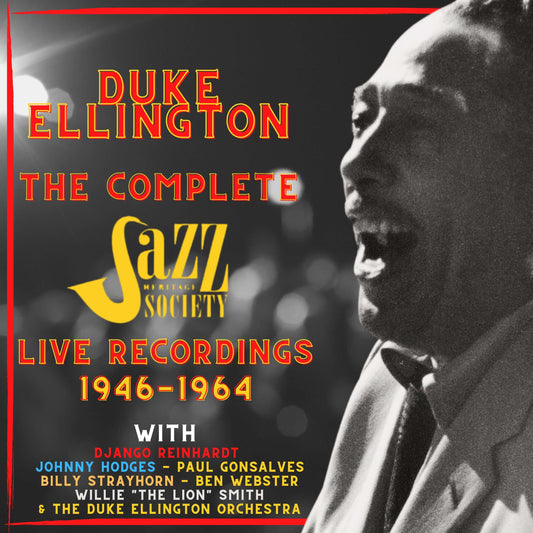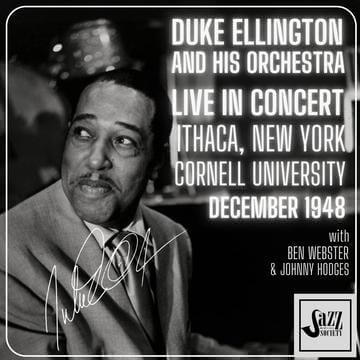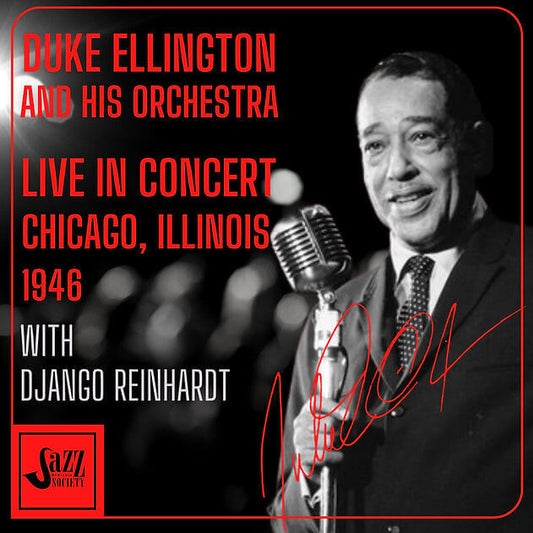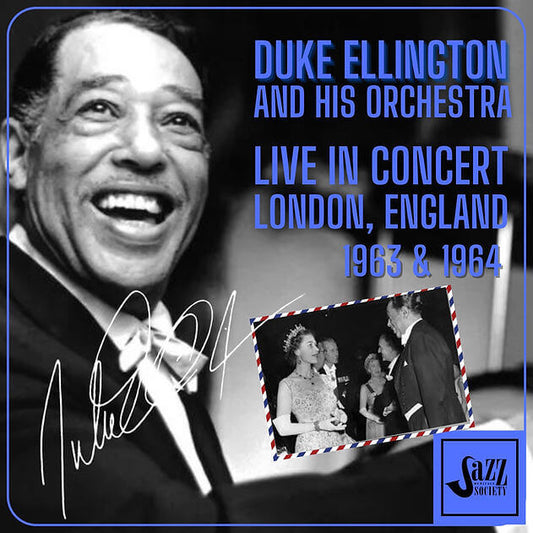1
/
of
1
DUKE ELLINGTON (1899 – 1974)
Duke Ellington: Live in Concert, Chicago, Illinois 1946
Duke Ellington: Live in Concert, Chicago, Illinois 1946
One of the great Duke Ellington live shows - featuring four tracks from Django Reinhardt.
Regular price
$0.00
Regular price
Sale price
$0.00
Unit price
/
per
STREAMING
Duke Ellington's famous concert in aid of Russian War Relief at Carnegie Hall in 1943, when his Black, Brown and Beige was premiered, set more than one kind of precedent. By 1946 it had become customary for him to present new works in a concert or concerts on an annual basis. His program at Carnegie Hall on 4 January that year belatedly delivered 1945's entitlement, but in November he was ready again with much more fresh material for a concert tour arranged by the William Morris Agency. What made it unique was the addition of a "guest star" from Europe -- the guitarist Django Reinhardt. Ellington had met Django in Paris in 1939 and had been much impressed when they played together in a small club. Moreover, three of his musicians had recorded with the guitarist, and like so many famous American jazzmen in France before World War 11, they had been dazzled and delighted by the experience. In his autobiographical Music Is My Mistress, Ellington wrote of Django as "a very dear friend ... one whom I regard as among the few great inimitables of our music." (The other inimitables were Johnny Hodges, Sidney Bechet, Billy Strayhorn and Art Tatum, and while attempts were certainly made at imitating them, the attempts were never completely successful.) Unlike his erstwhile partner Stephane Grappelli, who had been in England, Django had spent the war years in occupied Europe. The intervening period had perhaps diminished his reputation, but he set out for the U.S. with high hopes, not even taking his guitar with him because he anticipated that American manufacturers would rush to equip him with their latest models. Ellington had written no special music for him, and when asked if he had brought any of his own, Django replied confidently, "Jouez ce que vous voulez, je suivrai!" ("Play what you wish, I'll follow!") So it was decided that he should play the four numbers on this disc, the band having a minimal supportive role and the guitarist maximum freedom.
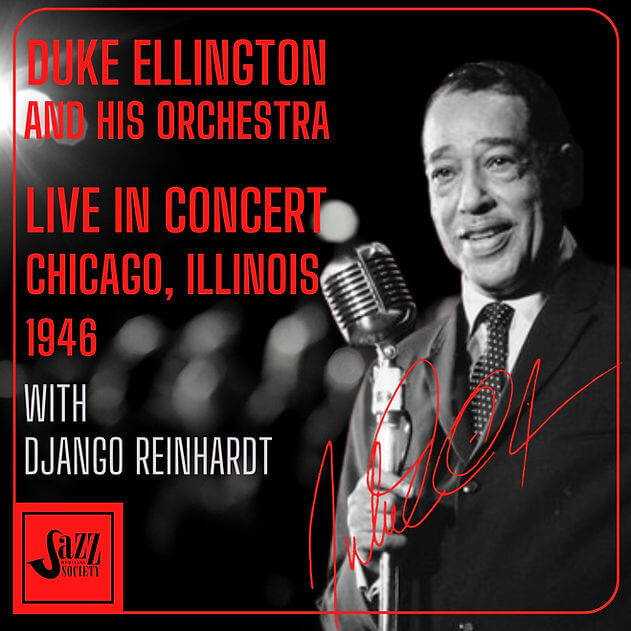
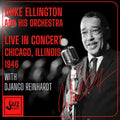
00:00
/
00:00
•
skip_previous
play_circle_outline
pause_circle_outline
skip_next
Also Available from DUKE ELLINGTON (1899 – 1974)
-
STREAMING
Benny Carter: Elegy in Blue
ExploreRegular price $0.00Regular priceUnit price / per -
STREAMING
Django Reinhardt with the Duke Ellington Orchestra: Live ...
ExploreRegular price $0.00Regular priceUnit price / per -
STREAMING
DUKE ELLINGTON ORCHESTRA: Music Is My Mistress - conducte...
ExploreRegular price $0.00Regular priceUnit price / per -
STREAMING
DUKE ELLINGTON ORCHESTRA: Only God Can Make a Tree - cond...
ExploreRegular price $0.00Regular priceUnit price / per -
STREAMING
DUKE ELLINGTON: In My Solitude: Solo Piano and Small Gr...
ExploreRegular price $0.00Regular priceUnit price / per -
STREAMING
Duke Ellington: Black, Brown & Beige - Louie Bellson & Hi...
ExploreRegular price $0.00Regular priceUnit price / per -
STREAMING
Duke Ellington: Four Symphonic Works - American Composers...
ExploreRegular price $0.00Regular priceUnit price / per -
STREAMING
Duke Ellington: Greatest Hits Live! (The Library of Congr...
ExploreRegular price $0.00Regular priceUnit price / per -
STREAMING
DUKE ELLINGTON: HIS COMPLETE JAZZ HERITAGE SOCIETY LIVE R...
ExploreRegular price $0.00Regular priceUnit price / per -
STREAMING
Duke Ellington: Live at Cornell University, 1948
ExploreRegular price $0.00Regular priceUnit price / per -
STREAMING
Duke Ellington: Live in Concert, Chicago, Illinois 1946
ExploreRegular price $0.00Regular priceUnit price / per -
STREAMING
Duke Ellington: Live in Concert, London, England, 1963 & ...
ExploreRegular price $0.00Regular priceUnit price / per

